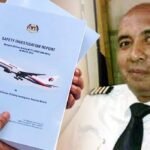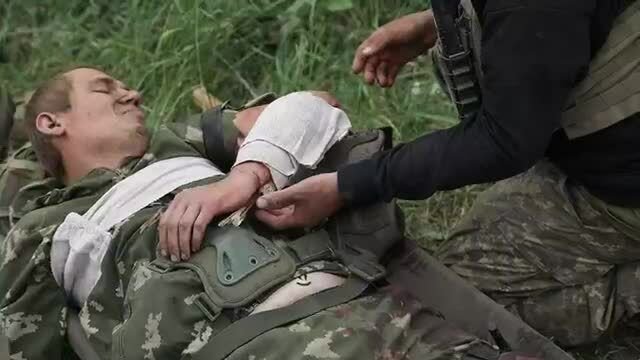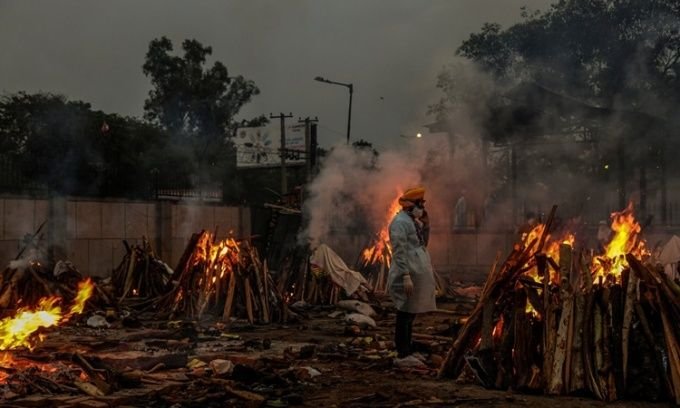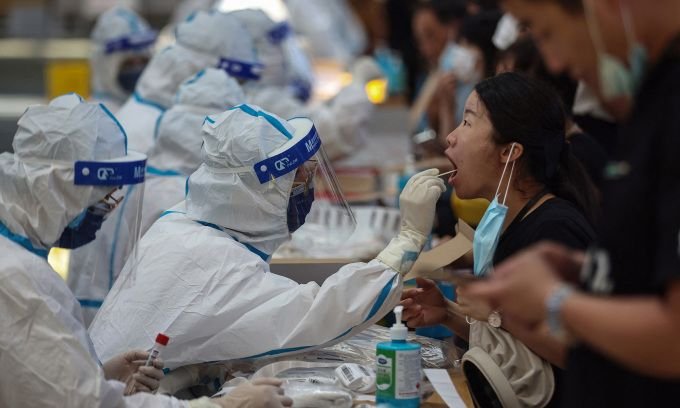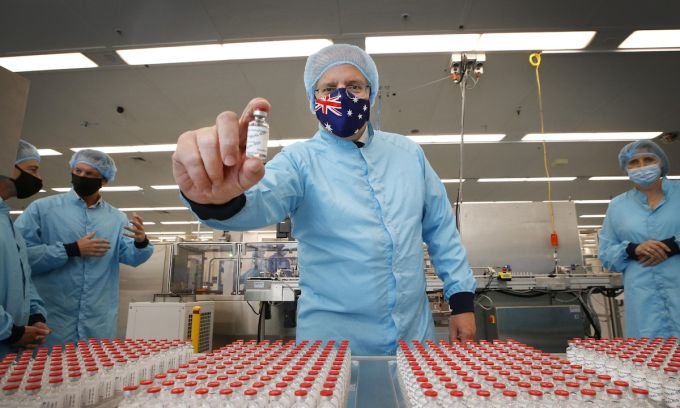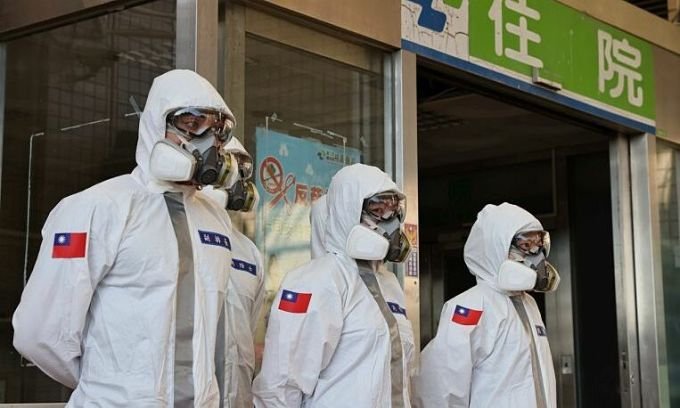`When we stayed on the front line, we did not suffer any incidents. It was only when we withdrew that we were attacked,` said the commander of the Ukrainian paratrooper unit, after going through the withdrawal journey under fire.
They received orders to march to new defensive positions on June 26, withdrawing from Severodonetsk and Lysychansk, two cities known as the `fire navel` of Russian artillery, after weeks of fierce fighting.
The day before, the Mayor of Severodonetsk announced that the Russian army had complete control of the city, including the Azot chemical factory.
Ukrainian paratrooper injured after being hit by an air strike
A Ukrainian paratrooper unit was hit by a Russian air strike on its way out of Lysychansk.
The Ukrainian paratrooper unit retreated in armored vehicles, but because there was not enough room inside the vehicle, many people had to sit on top, where there was no protection.
The first bomb fell when the convoy entered the village of Verkhniokamianske.
After a series of explosions, many paratroopers sitting in armored vehicles suffered serious injuries to their limbs and heads.
The paratrooper team quickly stopped the bleeding of the wounded soldiers, pulled them into the armor, and then quickly found a way to leave the village.
They drove their vehicles under the trees, covering them with branches and leaves to camouflage themselves to avoid `eyes and ears` from unmanned aerial vehicles (UAVs) searching for targets on the battlefield.
The `nightmare` withdrawal that day was only a small part of the chaotic picture of the redeployment of Ukrainian forces from Severodonetsk and Lysychansk to new defensive points, after these cities were almost completely destroyed.
Russia’s special military campaign in Ukraine has lasted more than 4 months.
They deployed large forces of artillery and rockets to continuously attack and bombard the enemy’s defensive positions, causing the Ukrainian army to suffer heavy casualties and gradually lose its defense line.
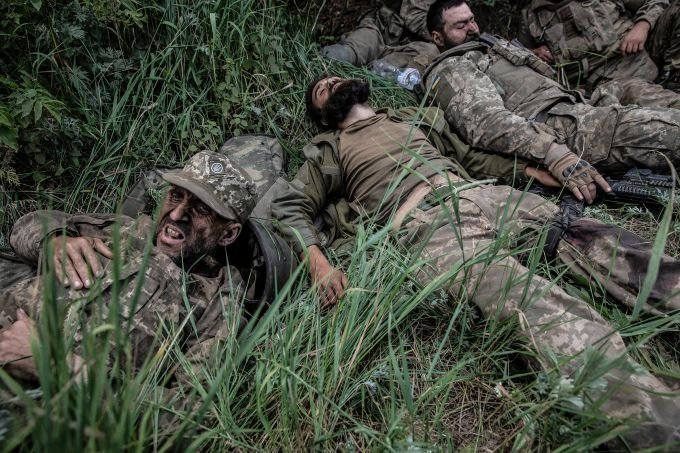
Members of the Ukrainian paratrooper unit were exhausted after fleeing air strikes, on their way out of Lysychansk on June 26.
Ukrainian officials said that Russian artillery overwhelmed the country’s forces 10 times.
When Washington Post reporters approached the location of the armored convoy of the Ukrainian paratrooper unit, the commanding officer had just called headquarters, informed them of the location where they were attacked and requested that vehicles be sent to evacuate wounded soldiers.
The encounter in the middle of the battlefield was unexpected luck for the group of Ukrainian paratroopers.
After about half an hour of coordination, he and the medical staff of the paratrooper unit completed first aid for the most serious cases.
This security officer said he acted in a humanitarian spirit.
After the airstrike, eight Ukrainian paratroopers were injured, at least two of them seriously.
`He was hit in the head by shrapnel. I couldn’t find the exit hole, perhaps the shrapnel is still inside,` said the unit’s medical soldier.
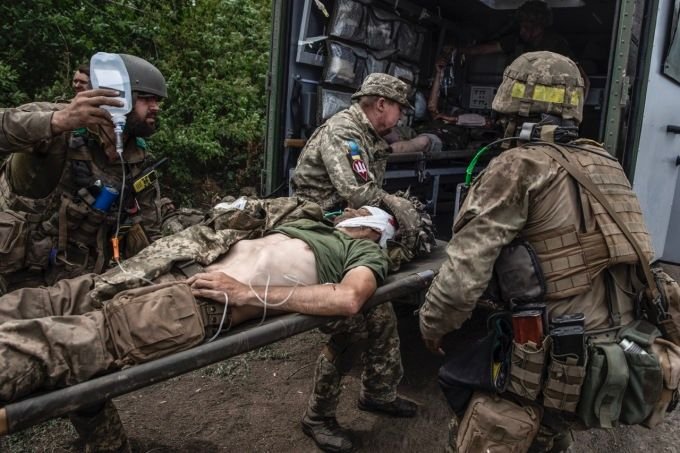
Wounded soldiers were put on evacuation vehicles after a Ukrainian paratrooper unit was hit by an air strike on the way out of Lysychansk on June 26.
Another wounded soldier lay on an ambulance stretcher next to him, the cloth soaked in blood from the tightly bandaged wound on his thigh.
On the other side of the field, a Ukrainian artillery complex began firing, creating a large stream of fire.
The reporter’s security officer injected another shot of morphine into the wounded soldier’s head, then gave the unit’s military medical staff four antibiotic pills.
He also noted that military doctors stick the medicine box on the patient’s body so that the treating doctor knows what medicine the person has taken, and always keep the patient awake to monitor his health situation.
`They’re here,` the commander announced a moment later, looking toward the road dust blowing up in the distance across the field.
The route out of Lysychansk that morning was busy with vehicles carrying wounded soldiers in and out.
`Get out of the way, make room now. Take these two people first,` the commander pointed towards the two most critically injured soldiers in the unit.


